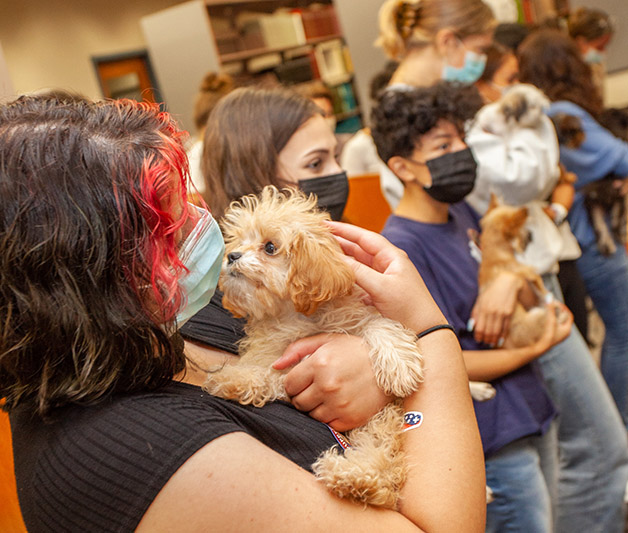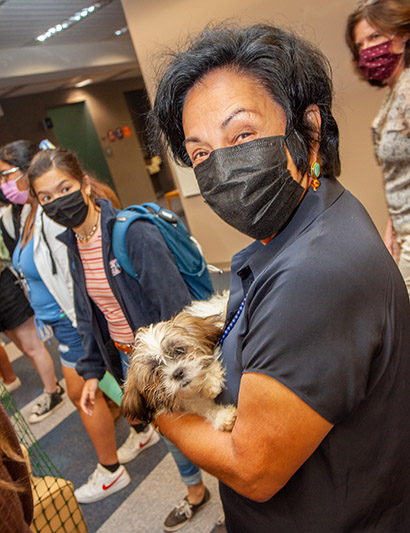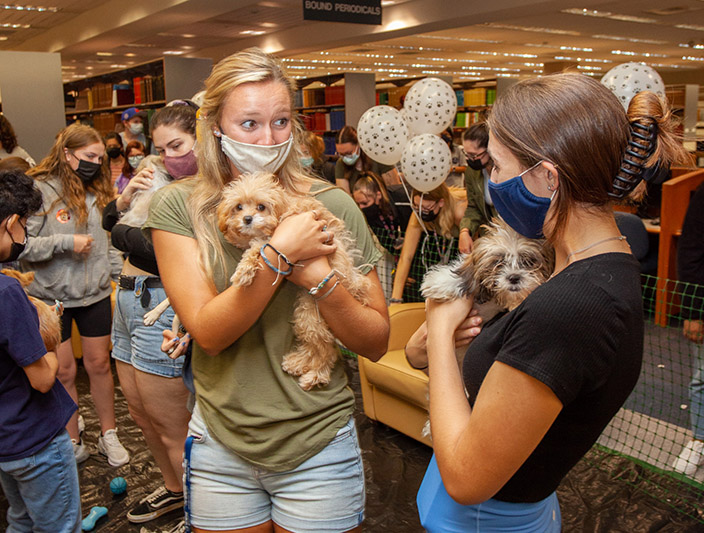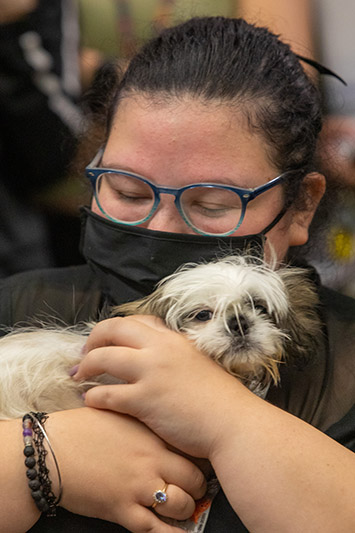- Apply
- Visit
- Request Info
- Give
Eastern employs therapy puppies to sooth back-to-campus anxiety
Written by Ed Osborn
Published on August 27, 2021
After hearing concerns from faculty, staff and students about returning to campus this fall and holding on-ground classes during the continuing pandemic, Eastern Connecticut State University found a fluffy solution — therapy dogs.
The University provided free puppy therapy sessions for the campus community on August 30 on the first floor of the J. Eugene Smith Library. Located at the entrance of the Academic Success Center, 10 visitors at a time were alotted five-minute sessions in a pen full of puppies.
The 2021 Beginning College Survey of Student Engagement (BCSSE) found that 53 percent of current college students have experienced “substantial increases in mental and emotional exhaustion” due to the pandemic.
“Anxiety levels have been quite high,” said Provost William Salka. “Many students and faculty are returning to on-ground classes for the first time in more than a year. We expect our students will continue to struggle this year. Some will struggle psychologically, and they will need our support.”
Research from the University of British Columbia in 2018 showed the benefits of therapy dogs on college student stress. Published in Stress and Health, “researchers found that participants reported significant reductions in stress as well as increased happiness and energy immediately following the session, compared to a control group of students who did not spend time at a therapy dog session.”
“The act of petting an animal has been shown to reduce short-term subjective stress and cortisol levels,” added Kristalyn Salters-Pedneault, professor of psychological science at Eastern.
Eastern student researcher Alexandra Steel presented her findings at the National Council on Undergraduate Research in 2016 for her study titled “Pet Therapy, Mood and Social Facilitation.” She found support for her hypothesis that “the presence of a therapy dog increases positive mood and social facilitation,” even for a short period of time.
“We are in unprecedented times,” said Chris Ambrosio, director of opportunity programs. “Focusing on the well-being of our students needs to be our priority right now. Puppies will help us do that.”






